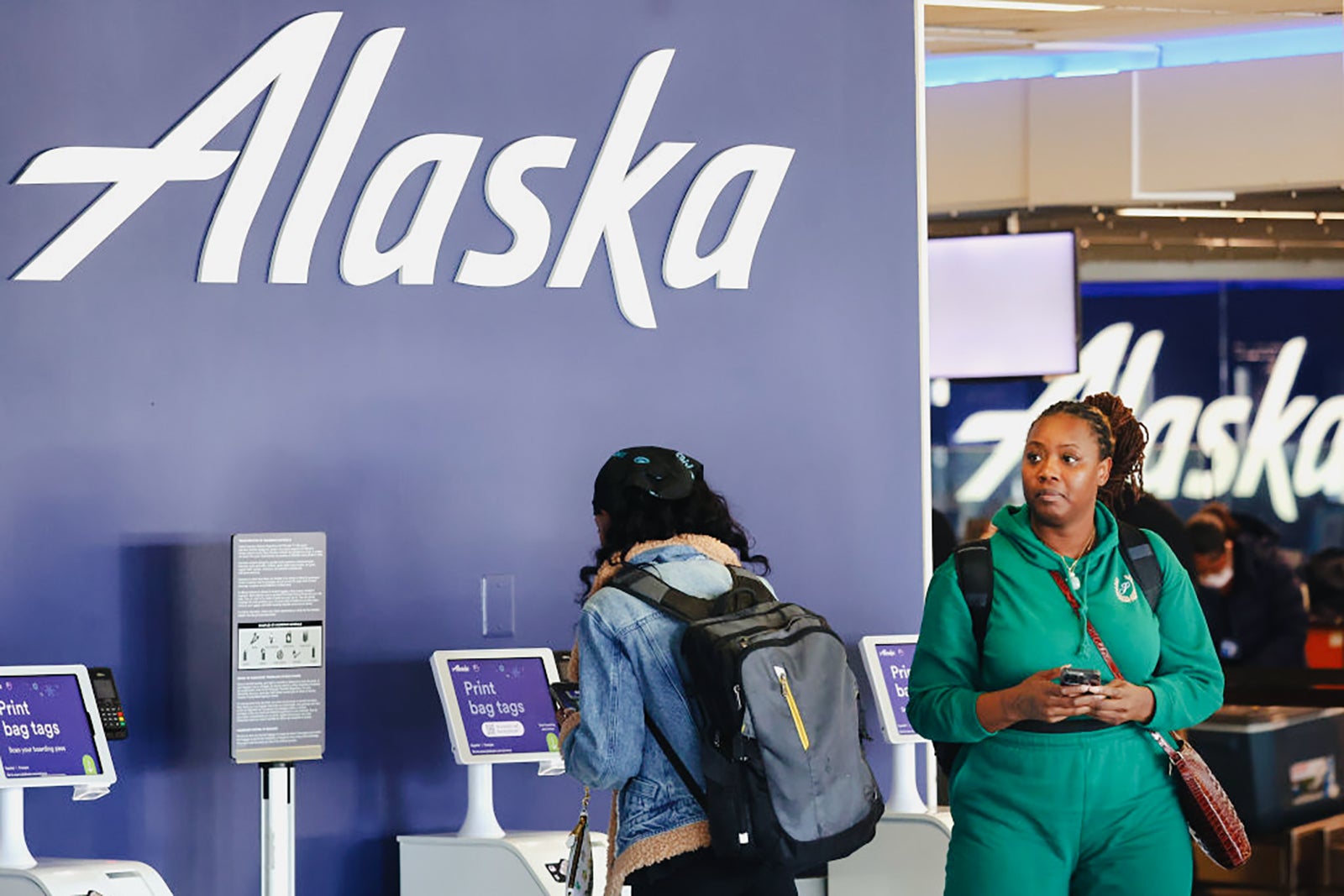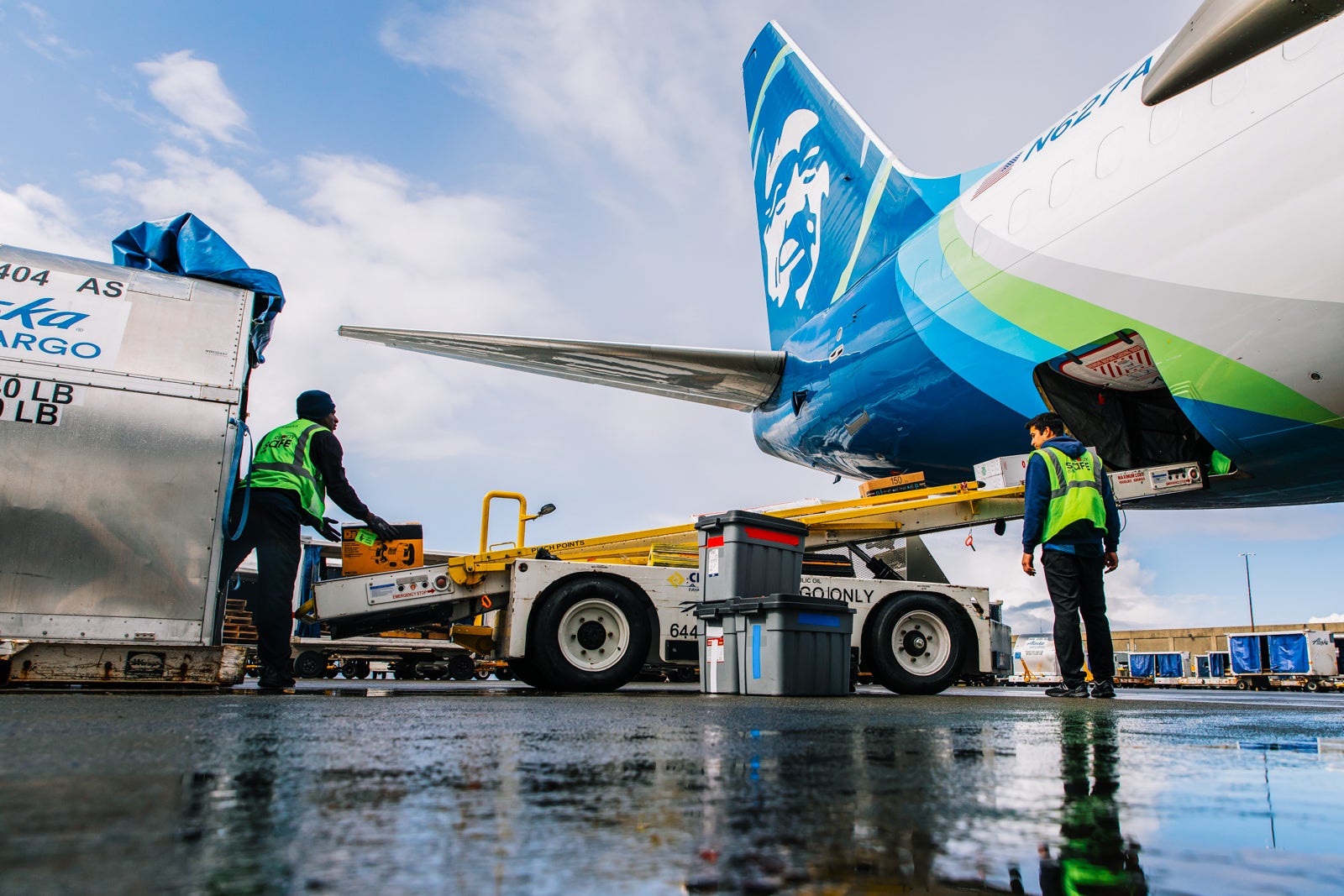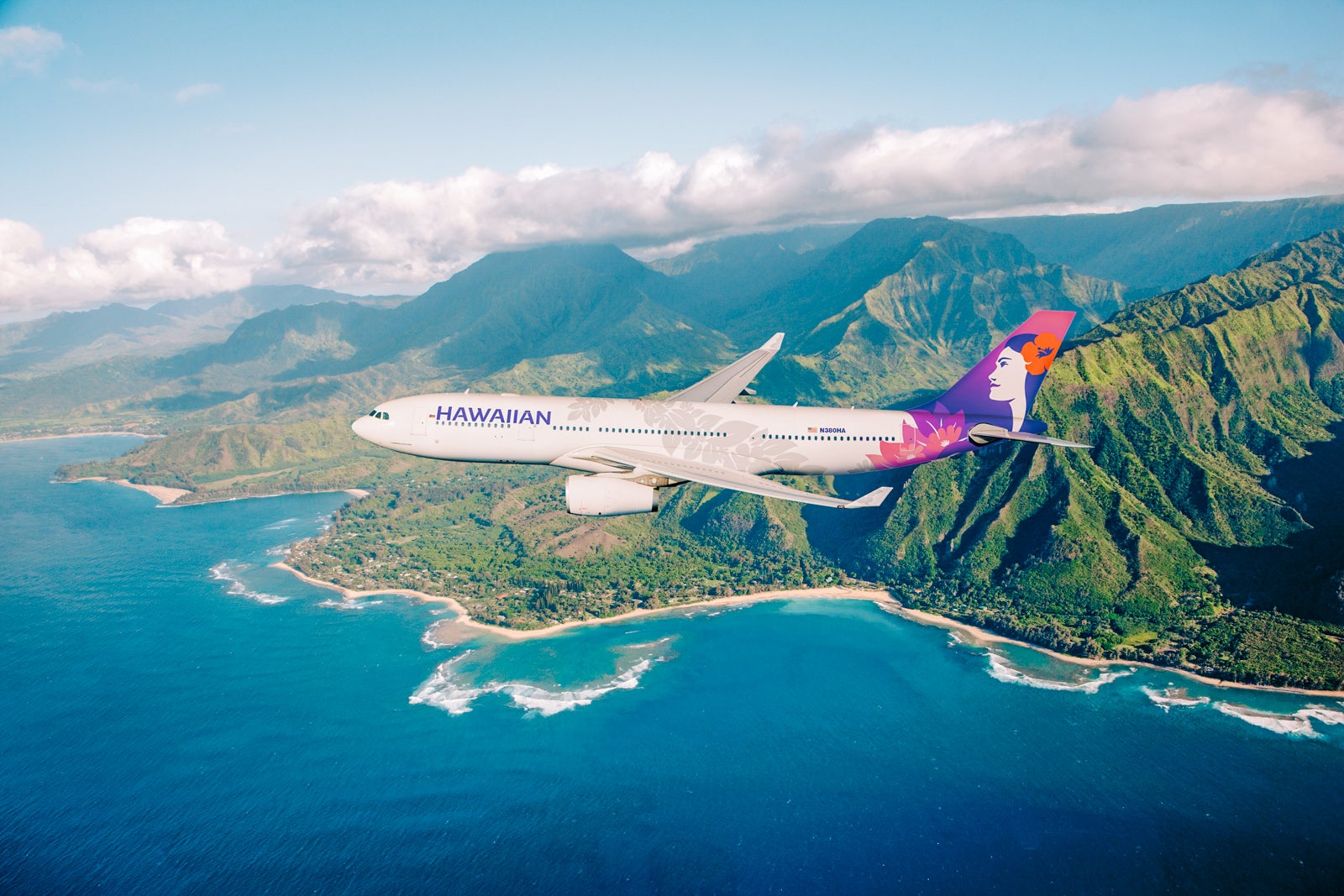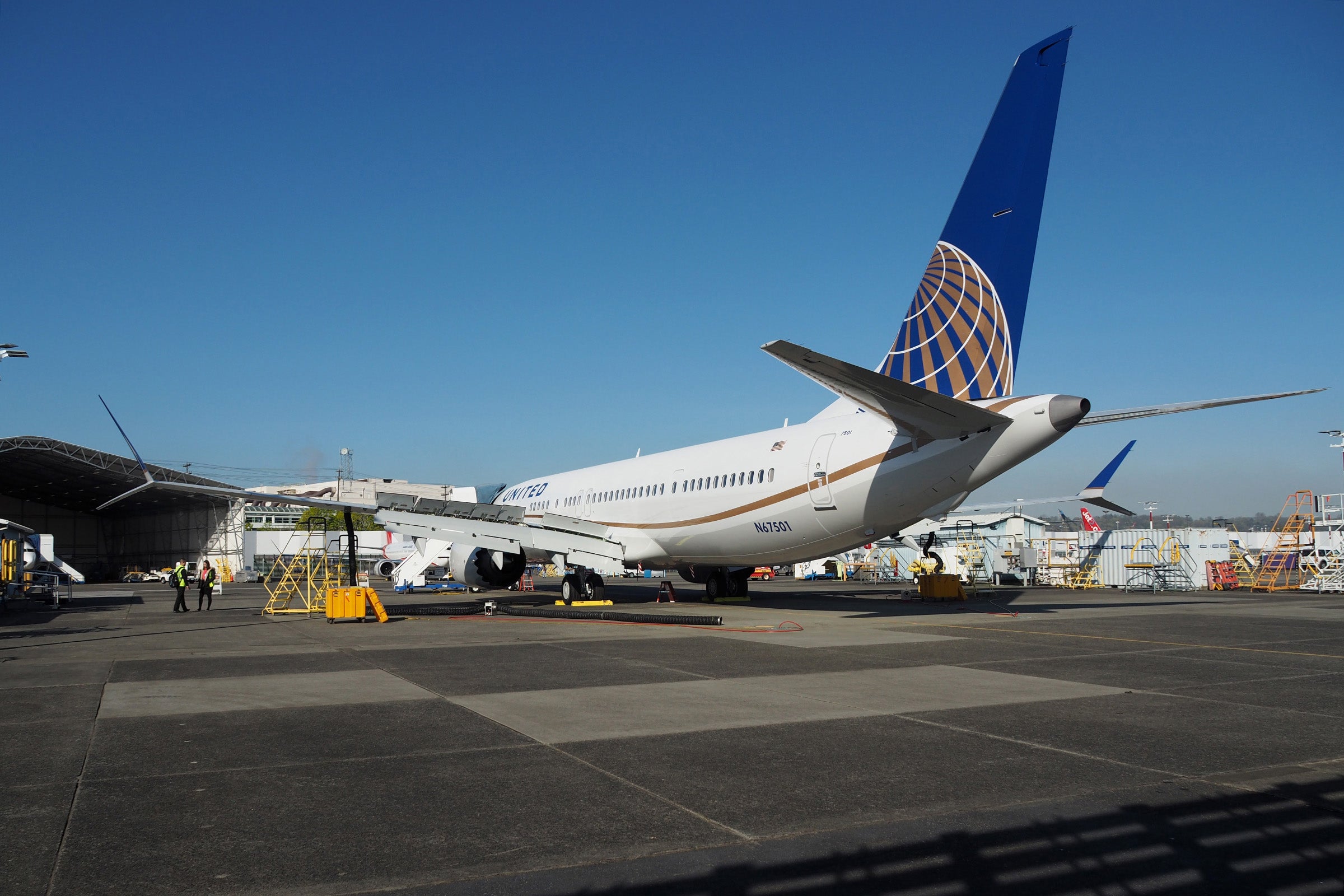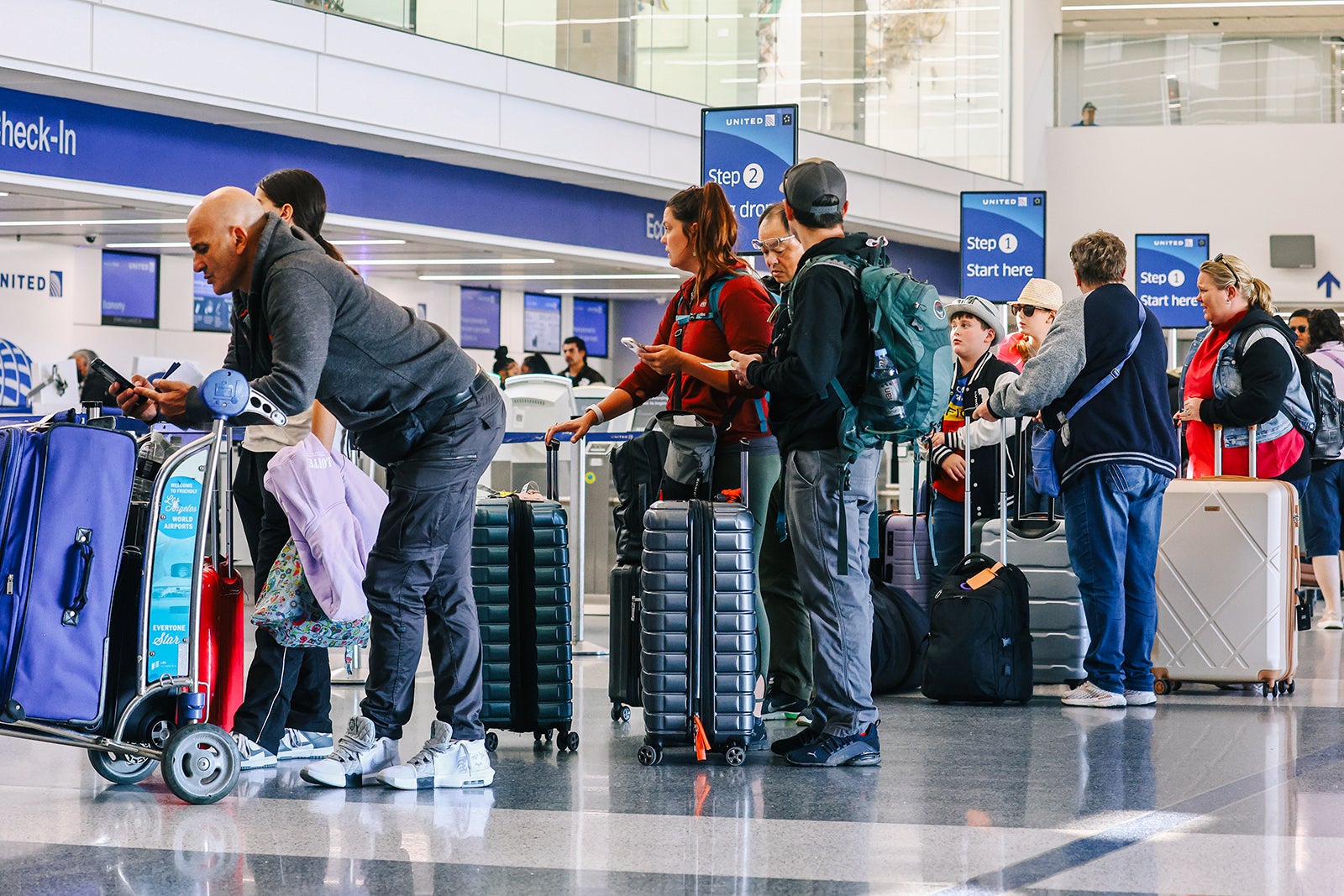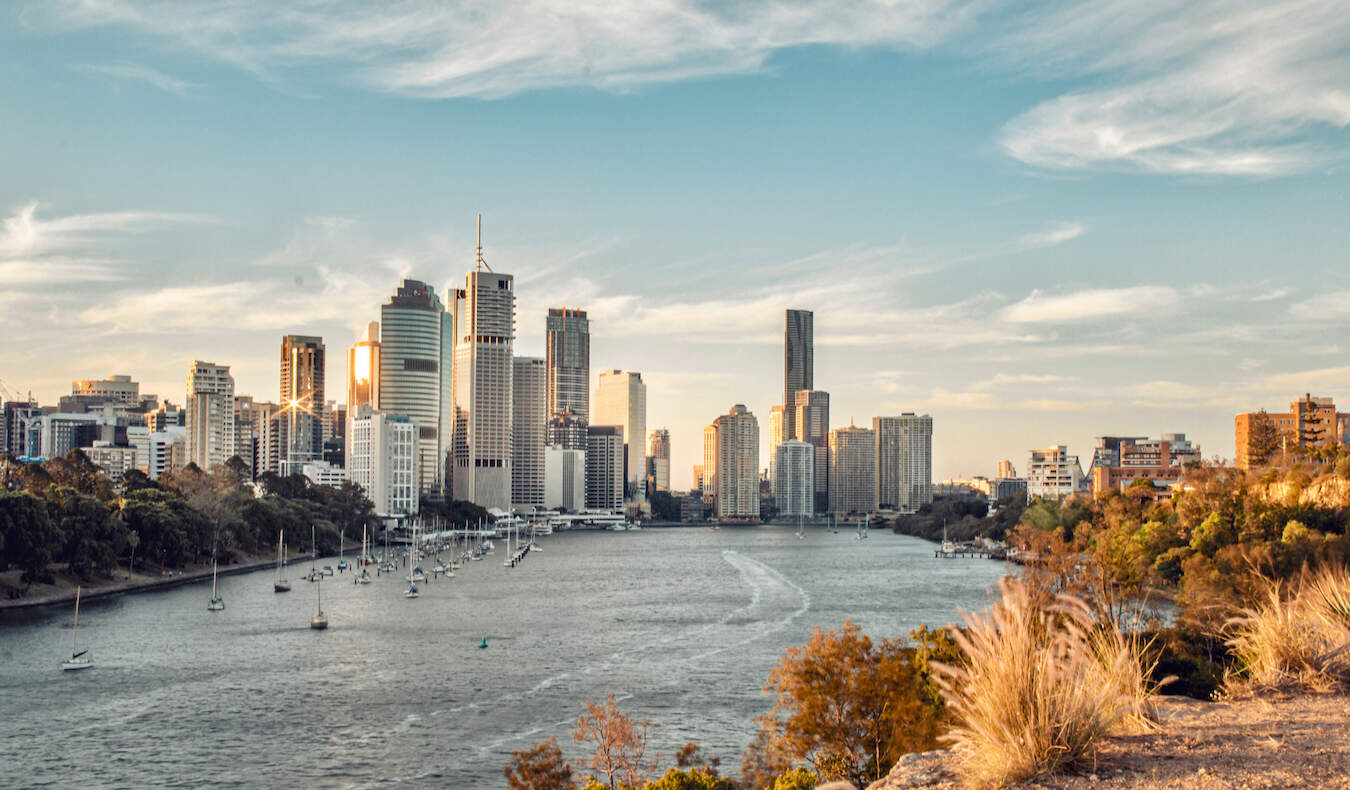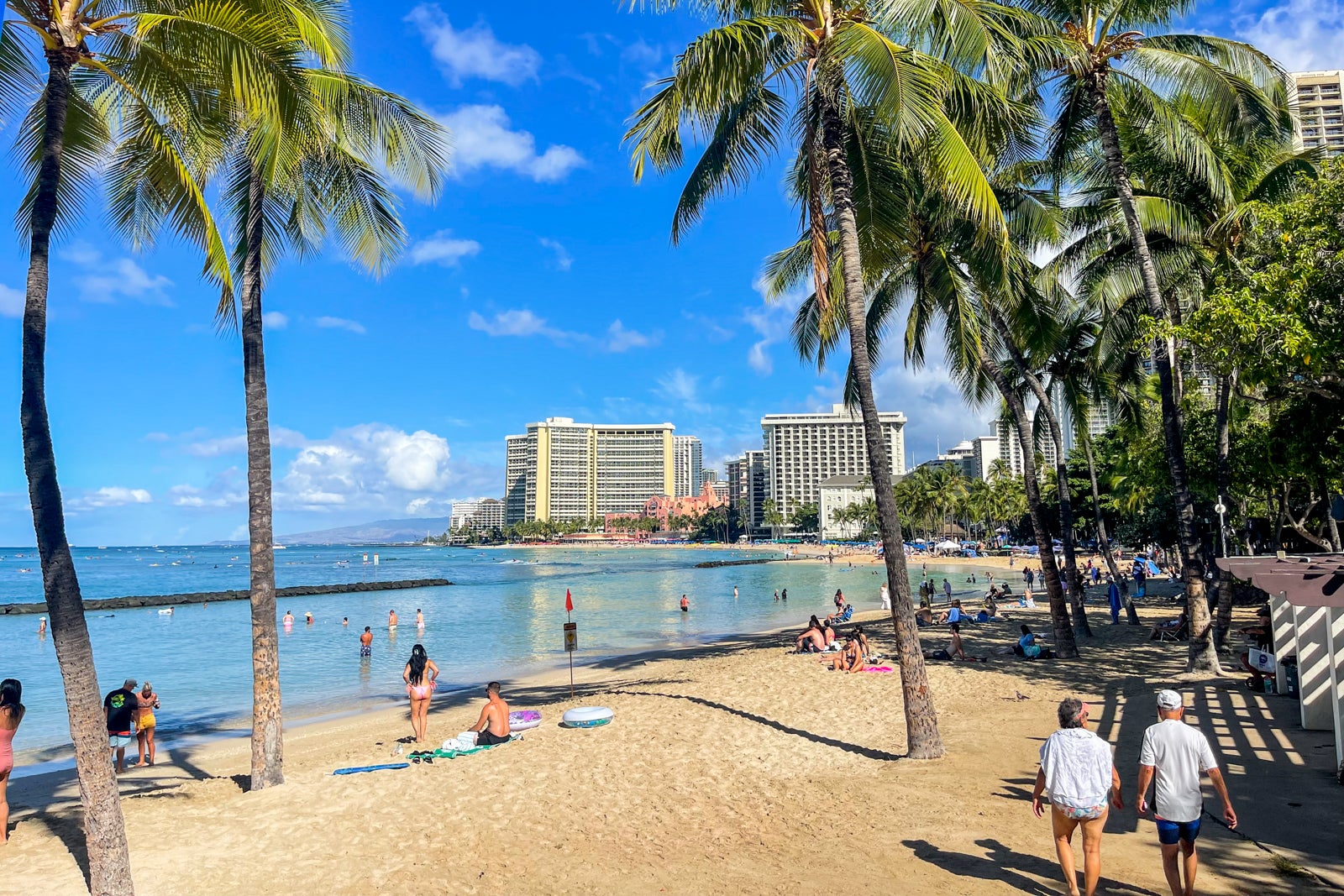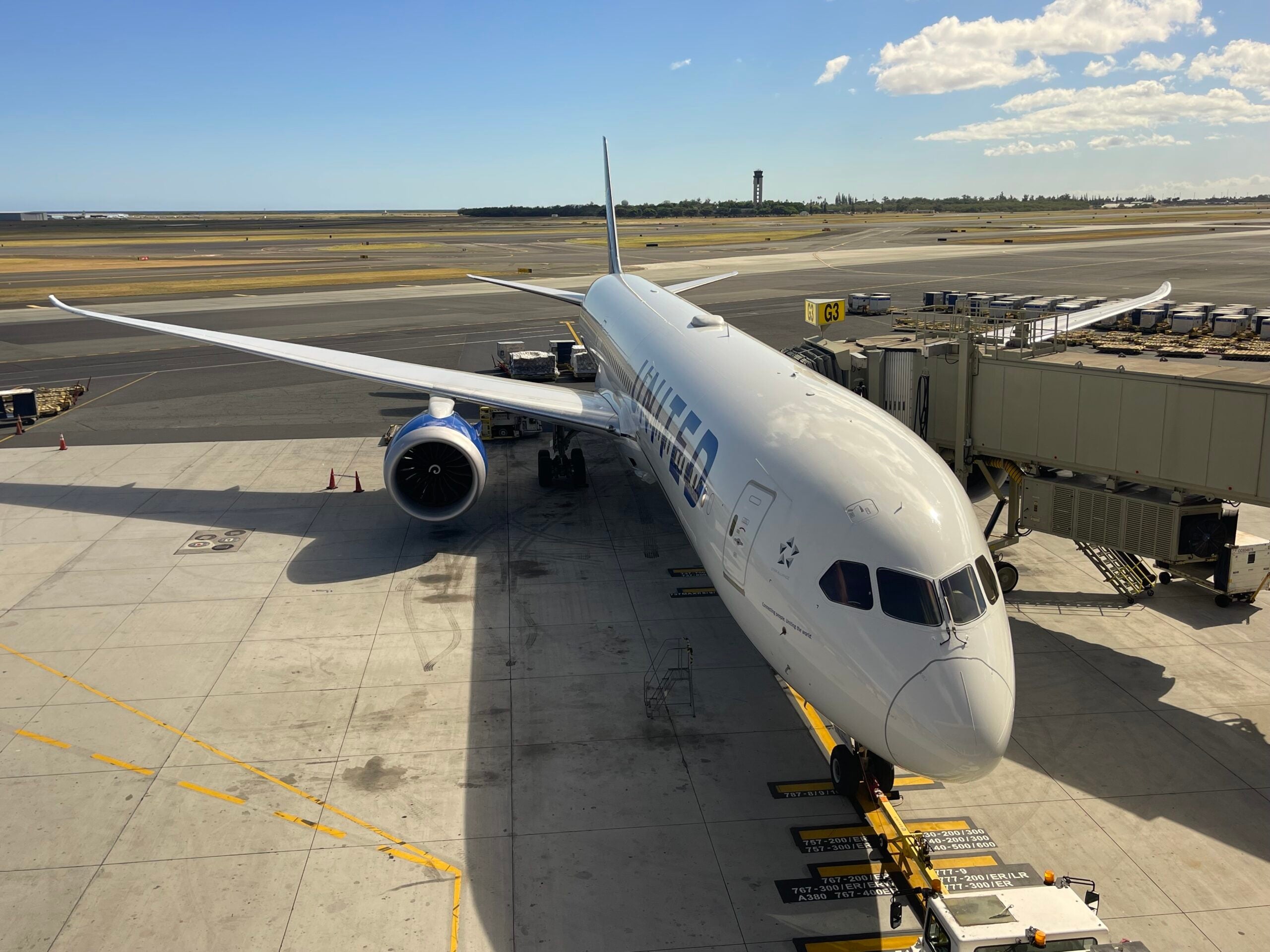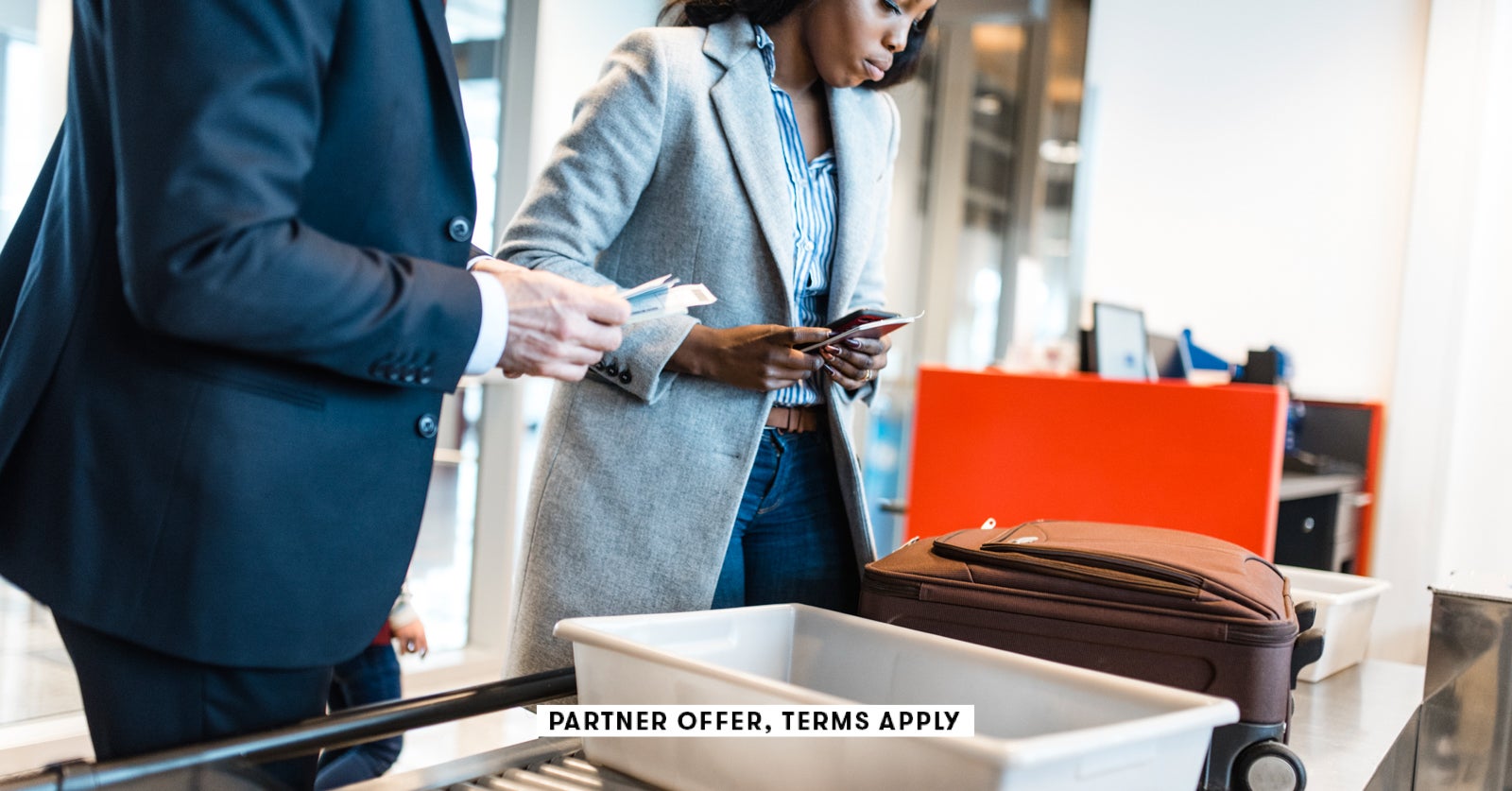Getting compensation for a trip ruined by the 737 MAX 9 grounding
Even with all our travel savvy, the experts at The Points Guy and our team of intrepid contributors are occasionally thrown a curve ball … in this case, by the grounding of the Boeing 737 MAX 9.
Alesandra Dubin was stranded in Hawaii (the horror!) by the 737 MAX 9 groundings. And while she was lucky enough to wait it out at the Four Seasons Resort Maui at Wailea until she could rebook her family on alternative flights, it was still a potentially costly ordeal.
Here’s what she had to do to get her family home … and then get compensation for her out-of-pocket expenses with the help of our ombudsman, Michelle Couch-Friedman.
— Eric Rosen
Stranded in Hawaii
Like Gilligan’s three-hour tour, ours was supposed to be a short but sweet adventure. I had traveled with my husband and our 9-year-old-twins to Hawaii, where we spent five days at the Four Seasons Resort Lanai horseback riding, swimming, trying our hands at archery, playing shuffleboard over cocktails (for the adults) and milkshakes (for the kids) — even stargazing at the on-site planetarium. By all measures, it was the perfect family vacation, an ideal last hurrah before we’d return to the rigors of work and a new semester of fourth grade.
The first sign that we’d be deviating from the plan came in the early morning hours of Jan. 6, when I was sleeplessly scrolling various notifications on my phone and saw the news that there’d been a midair incident on an Alaska Airlines 737 MAX 9 jet. We were scheduled to fly home from Maui’s Kahului Airport (OGG) to Los Angeles International Airport (LAX) the next day on the very same airline and aircraft type.
As news of the grounding of the 737 MAX 9 kept rolling in throughout the day, we made what later revealed itself to be a strategic blunder: Instead of immediately seeking a different solution, we checked in for our flight as normal, 24 hours ahead of scheduled departure, and we waited. We packed and got ready to go.
However, the airline canceled our flight later that day. It alerted us to the cancellation with an email that did not offer any viable solutions for getting home. It read:
We tried to rebook you onto another flight, and we are currently unable to find you a new flight in the next couple of days from your original airport, or from surrounding airports, due to limited availability.
The email asked passengers to look for new flights and rebook directly on Alaska’s website, cancel their tickets for a refund, place the value of the ticket in an Alaska Airlines Mileage Plan Wallet for future use, or call customer service to discuss their options.

Daily Newsletter
Reward your inbox with the TPG Daily newsletter
Join over 700,000 readers for breaking news, in-depth guides and exclusive deals from TPG’s experts
I decided not to cancel right away but to simply hold on to the existing tickets while I checked for alternative flights on other airlines. At that time, it seemed feasible — even likely — that Alaska would sort out the issue and get us headed home late on another flight without me having to cancel our original booking.
By this point, the few available flights on other airlines into Los Angeles had long since filled up with displaced Alaska 737 MAX 9 passengers. We checked alternative airports and flights with multiple inconvenient connections — there was nothing on our original travel day, nor for several days after. A few hours of incredulous scrolling later, it eventually sunk in that we were stuck.
The delay drags on
We had been scheduled to take the first of two ferries between Lanai and Maui on Jan. 7 as the first leg of our trip home. But with no mainland flight in sight, we thought we might wait it out in Lanai. I called Expeditions, the ferry operator, and inquired about using our existing tickets on some unspecified future day instead.
The agent informed me that, yes, theoretically that would be possible. But she also alerted me that a storm was coming into the area the following day and ferries might not run in the event of inclement weather. If that happened, we wouldn’t be able to get back to Maui even if a flight to the mainland were to open up. So we decided to pivot: We’d leave Lanai for Maui that afternoon — on the last ferry ahead of the storm — and set up shop at a hotel in Maui to wait it out.
I messaged a professional contact at the Four Seasons Maui at Wailea with a last-minute plea to see if there was room at the inn. She replied speedily, telling us to come; the resort would welcome us with two complimentary nights and two more at a discounted rate. I readily accepted, thinking that there was no way it would take another four days to get home.
Following Maui’s devastating fires, the ferry now travels into and out of Maalaea Harbor instead of Lahaina, making it a longer 75-minute trip (compared with 45 minutes on the previous route), though closer to Wailea and the Four Seasons.
On our ferry trip, we witnessed a striking sunset, calm seas and plenty of whales in the distance. Our misadventure was already taking an enjoyable new form. Yes, the kids would miss several days of school, which was far from ideal. But acceptance would be the way to get through this indefinite wait — and to enjoy it, too.
Plus, I was heartened to know I held a valid, up-to-date travel insurance policy with Allianz covering the whole family. In September, after a complex family trip to Europe that saw plenty of expensive travel hiccups, I’d decided to insure the entire family under an annual plan for a total cost of $485. So I felt confident I’d likely recoup at least a fraction of the extra costs I’d incur in Hawaii during the delay. A quick check of my plan determined each member of my family should be covered up to $1,500 under the “travel delay” clause, which I was confident that I could invoke once our situation worked itself out.
The rain came, and we watched whales and rainbows from our suite’s windows. When the weather cleared, we splashed in the pool and dined alfresco. During the day, we sent the kids to do crafts and make friends at Kids for All Seasons, the brand’s excellent kids club, while my husband and I worked remotely from our spacious suite, the tricked-out club-level lounge and even a pool cabana. It was the best-case scenario for a stranded family of travelers — and maybe even a dream come true for all of us that allowed us to spend an extra few days in paradise.
Booking new flights and getting home
All the while, I searched for new flights. Eventually, we secured tickets on a nonstop flight home Jan. 11 — four days after our originally scheduled flight — on a Hawaiian Airlines A330-200. If something else were to open up sooner, we’d want to be able to grab it, so we paid $40 per ticket more for a refundable option, just in case.
The total price per ticket was about $500 (approximately comparable to the cost of the original leg on Alaska during what would have been a peak travel day at the end of the festive season), including seat selection in the Extra Comfort portion of the cabin.
Finally, the day came to end our extended stay in Hawaii. We called an Uber and made our way to the airport. From there, our Hawaiian Airlines flight left right on time, returning us home to Los Angeles 30 minutes ahead of the airline’s scheduled time — and four days behind ours.
All that was left was to pursue compensation in the days to come. I expected Alaska would give me a full refund for the cost of my tickets, if not be on the hook for additional compensation. I’d put my Maui expenses on my Chase Sapphire Reserve, which comes with its own set of travel protections. And, of course, I had the Allianz policy, so I planned to file an insurance claim for the extra expenses I incurred during the delay.
But I’d never filed a travel insurance claim before, and I didn’t know exactly what I was entitled to, nor how hard (or not) I’d have to work to be made whole. So I turned to consumer advocate and The Points Guy ombudsman Michelle Couch-Friedman to support my efforts.
Spoiler: The whole thing was even easier than I thought given the protections I had in place.
— Alesandra Dubin
Our advocate is on the case
The Federal Aviation Administration’s emergency grounding of the 737 MAX 9 has left thousands of stranded passengers in its wake — including Alesandra and her family. These bewildered travelers are all scrambling to do the same things: rebook their flights, adjust their plans and mitigate the impact of the grounding on their finances.
Most of those displaced passengers have never found themselves in such a chaotic situation before and don’t know where to turn. That confusion can lead travelers to make expensive missteps that make their situations much worse. Even Alesandra, an experienced world traveler with a solid travel insurance policy, wasn’t quite sure what to do or how to minimize the cost and emotional toll of being unable to get home as planned.
By the time I heard from Alesandra, she and her family were already back in Los Angeles, albeit having spent four extra days and a lot of money on their unplanned extended stay.
When she went over the details of her experience with me, I was happy to hear that she had an annual comprehensive travel insurance policy issued by Allianz. I was confident that the thousands of dollars in additional expenses her family incurred (including the new airline tickets she had to purchase) would be covered.
However, as Alesandra mentioned, she had never filed a travel insurance claim before. While it’s true that the process can be a bit intimidating, it doesn’t need to be, and I was happy to help Alesandra navigate her claim with Allianz. I’ll get to that in a moment.
What are your rights during mass flight cancellations?
But first, here’s what airline passengers need to know about mass flight cancellations — what your rights are and what you should do if your plans are affected by a major event like this.
Unlike Europe, which has robust passenger protection rules, the United States has limited duty-of-care requirements for airlines after a flight cancellation.
The U.S. Department of Transportation only requires an airline to do one of two things (not both) for a customer affected by a canceled flight:
1. Offer the customer the next available flight to their destination on the airline’s own fleet. This no-cost replacement could be hours, days or even weeks later (as we saw during the pandemic and now during this grounding). Unfortunately, the DOT doesn’t specify a required time frame for the new flight. So, during a mass aircraft grounding, as we’re currently seeing, depending on the passenger’s routing, a replacement may not be available for a lengthy period of time.
2. Provide a refund to the passenger. If the customer prefers to receive their money back for a canceled flight, the airline must promptly refund it. In this scenario, the carrier has no further obligation to the customer, who will need to find their own alternative transportation.
It’s important to note that the above are the airline’s minimum legally required obligations to passengers after a canceled flight.
However, there is a bit of good news for U.S. passengers.
Last year, many domestic carriers made additional voluntary duty-of-care customer commitments via the DOT that align with what is already provided to passengers under established laws in Europe, Canada and Israel. These additional offerings by U.S.-based carriers only pertain to flight cancellations and delays that are within the airline’s control.
Unfortunately, what is considered “controllable” for the airlines is not specifically spelled out by the DOT. That omission leaves it up to the airlines to decide.
We know bad weather and other natural catastrophes are not within the airlines’ control. But it remains to be seen whether or not the FAA’s emergency grounding of the 737 MAX 9 will be interpreted as something the airlines could have prevented. If so, then the argument can be made that all the cancellations as a result of the grounding were within the affected airlines’ control.
Alaska Airlines and United Airlines are two of the airlines that have committed to various additional customer care provisions after a controllable flight cancellation, which is good news for passengers. Those include:
- Rebooking the passenger on a partner airline at no additional cost (when available)
- Hotel accommodations for travelers during an overnight delay
- Food and beverage vouchers
So don’t be shy. If your flight is canceled and you’re stuck at the airport, make sure to find out what is being offered to affected passengers from an airline representative.
What steps can you take if you’re stranded by a flight cancellation?
In a mass cancellation situation such as we’re seeing with the grounding of the 737 MAX 9, there will likely be limited options for rebooking your flight, given over 140 aircraft were suddenly taken out of service.
Unfortunately, when things like this happen, there is also limited availability for nearby hotel accommodations in the short term.
To reduce your chances of having to sleep on the airport floor or unexpectedly being forced to spend thousands of extra dollars during this type of traveler’s nightmare, it’s important to spring into action.
As soon as you identify that you and hundreds, or thousands, of other travelers are being hit with flight cancellations at the same time, you have to move fast.
Here’s what you should do.
Call the airline directly
If you’re at the airport when your flight cancellation is announced, don’t rush to the customer service desk, where hundreds of other displaced passengers will be. It’s always more efficient to call the airline directly and bypass that line. You might be able to get rebooked faster than the folks queuing up at the airport. If that doesn’t work …
Find out if the airline will rebook you on another carrier
Although no airline is required to rebook you on another carrier, that shouldn’t stop you from asking. Depending on your route and destination, your original airline might be willing and able to place you on another carrier. Make sure to ask nicely!
Ask for a hotel voucher
The Department of Transportation doesn’t require airlines to provide hotel vouchers in the case of canceled flights. As mentioned, though, a number of airlines have independently agreed to provide these benefits in the case of an extended delay or cancellation. These paper vouchers are issued by gate agents at the airport and will typically indicate one or more specific hotels where they can be used. However, I’ve seen situations where, especially during mass cancellations, the airline gave out too many vouchers and tired travelers arrived to find no room at the inn. If all the hotels on your voucher are sold out, find an alternative place to stay and make sure to keep that airline-issued hotel voucher and all your other receipts. You’ll need those later to submit to the airline for reimbursement. If you can, get a statement from the hotel on the voucher that it was sold out and unable to accommodate you.
Use social media to communicate with the airline
In a normal situation, tweeting a polite complaint to your airline on X (formerly Twitter) or sending a message via Facebook might get a positive (and faster) response. But in a mass cancellation event like the grounding of the 737 MAX 9, it isn’t likely that a social media approach will be effective. Your time would be better spent trying to connect with a live human being at the airline.
Call your travel adviser
If you booked your trip through a travel adviser or agent, this is specifically what they are there for: to help you get your trip back on track when things go awry. They can work with airlines’ booking systems to get you on different flights faster and more efficiently than the service airlines might be able to provide during such crises.
Don’t accept a travel credit when you’re owed a cash refund
If all else fails and the airline is unable to rebook you within a reasonable time frame, you can cancel your reservation for a full refund and rebook on another airline. As was the case with Alesandra, the airline may attempt to offer you future flight credit instead of a cash refund. That keeps your money in the airline’s “pocket” instead of your own. You’re under no obligation to accept flight credit after an airline cancels your flight, though. Remember, flight credit and vouchers come with restrictions and expiration dates. Cash does not.
In any dynamic situation like the 737 MAX 9 grounding, you’re likely going to have to take a series of steps to ensure not only that you get where you need to go, but also to make sure that you are covered financially while doing so.
Your travel insurance policy can help
Of course, a flight cancellation can be quite devastating to your vacation plans. However, having a good travel insurance policy in place can be a beacon of light during such disruptions.
Unfortunately, many travelers only consider trip insurance for international adventures. But travel insurance can protect you from the financial impact of flight delays and cancellations no matter where you’re traveling.
As a consumer advocate, I often receive requests for help from passengers who expect the airlines to provide compensation for missed cruises and other events after a flight delay or cancellation.
However, no federal laws or regulations compel an airline to offer such compensation. Travel insurance, on the other hand, can provide that relief.
If you get hit with a flight cancellation or extended delay and you’ve got a comprehensive travel insurance policy, you’ll likely have a 24-hour emergency hotline to call where a representative of the company can:
- Explain the benefits and limitations of your policy
- Help you rebook
- Find you an emergency hotel
- Give you the best guidance for getting home quickly
- Help you minimize the financial impact of the situation
In Alesandra’s case, the pertinent protection was trip delay insurance. That’s because her policy’s trip cancellation coverage would only pertain to predeparture cancellations while the trip interruption clause would only apply if the interruption had caused her and her family to miss 50% or more of their trip, not if it was extended due to circumstances like the Boeing grounding.
Use the trip delay and cancellation protection provided by premium credit cards
The travel insurance provided by premium credit cards like Chase Sapphire Preferred Card, the Chase Sapphire Reserve and The Platinum Card® from American Express *is generally secondary to any other reimbursement relief you might receive, including that from a travel insurance policy. But it might be all the protection you need for domestic trips.
I say “might” because, unlike a comprehensive travel insurance policy, these cards come with limited coverage.
In a mass flight cancellation situation where you may need to extend your trip multiple days or buy replacement airline tickets, the trip delay coverage on these cards may not be sufficient to cover your expenses.
Here’s a quick overview of the trip delay benefits on these three cards:
- Chase Sapphire Preferred: Kicks in after a 12-hour or overnight delay. Provides up to $500 in reimbursement for reasonable expenses incurred, including lodging and meals. That figure is per passenger as long as part of their ticket was paid for with the Chase Sapphire Preferred card. Call 888-320-9961 or visit eclaimsline.com to begin the claim process.
- Chase Sapphire Reserve: Coverage begins after a six-hour delay and also provides up to $500 reimbursement for reasonable expenses during a delay. This limit is per passenger as long as part of their ticket was paid for with the Chase Sapphire Reserve. Reserve cardholders can call 888-675-1461 or visit eclaimsline.com to begin the claim process.
- The Platinum Card from American Express*: The traveler is covered after a six-hour delay for up to $500 in reasonable expenses. There is a cap of two claims per eligible card per consecutive 12-month period. Call 844-933-0648 to begin the claim process. Enrollment is required.
It’s not hard to imagine that expenses can pile up quickly during an extended delay, and those caps may leave a traveler stuck with the bulk of the tab in this type of unusual situation.
For a more comprehensive insurance policy, use a site like InsureMyTrip to compare various travel insurance providers and their coverage.
You must buy your travel insurance before your journey, and in some cases, at the same time as you book it or right after. It is not possible to buy insurance after you’re already in the midst of a travel fiasco.
*Eligibility and benefit level varies by card. Terms, conditions and limitations apply. Visit americanexpress.com/benefitsguide for details. Policies are underwritten by New Hampshire Insurance Company, an AIG Company.
The good news
For Alesandra and her family, there was good news.
She and her husband carry the annual “AllTrips Premier” travel insurance plan with Allianz. That policy provides comprehensive coverage for travelers that includes, among other things, trip cancellation, interruption and delay protection.
I contacted our Allianz executive contact to discuss the policy, its coverage and how it could be applied in Alesandra’s case.
Allianz confirmed that because the family’s plans were delayed by more than six hours, the trip delay clause came into effect. The family of four was covered for up to $1,500 in total per person for accommodations, transportation, food and beverages, missed prepaid expenses, and the additional cost to fly home. Note: This Allianz travel insurance policy has a cap of $300 per day, per insured person. So for a four-day delay, this group was covered for a total of $1,200 each.
To complete the claim process, Alesandra provided the receipts for all the expenses incurred as a result of the grounding of the 737 MAX 9. Those expenses included their hotel, transportation to and from the airport, and food and beverages for the family. She also provided proof of her canceled Alaska flight, the cost of those tickets (refunded to her) and the price of her family’s new Hawaiian Airlines tickets.
Because Alaska Airlines had no replacement to offer the family and Alesandra was forced to book flights on another carrier, Allianz covered the new tickets minus the value of the canceled Alaska Airlines tickets.
Travelers should keep in mind that insurance is meant to make a traveler whole. When an airline cancels your flight and provides no alternative, that carrier must refund your money. Whether you accept the refund or a voucher is up to you, but the value of the canceled ticket will be deducted from the cost of your new tickets by your insurance adjuster. That’s one more reason to insist on a refund rather than a credit when an airline cancels your flight.
In the end, Alesandra’s family was well under the limitations of their travel insurance coverage and were able to claim just shy of $2,900 in reimbursements from Allianz. Alaska Airlines agreed to refund the canceled tickets as it was required to do, Allianz covered the additional costs the family incurred, and she didn’t need to make a claim through Chase for any extra expenses.
Bottom line
The FAA’s emergency grounding of the 737 MAX 9 has caused mass flight disruptions for travelers, and there is no end in sight. But with a bit of planning and awareness of your rights as a passenger, you can minimize the emotional and financial drain the cancellations will have on your plans.
However, if your airline remains resistant to your efforts to come to a reasonable resolution and you need additional assistance with your battle, send a request to ombudsman@thepointsguy.com and I’ll be happy to investigate.
— Michelle Couch-Friedman

